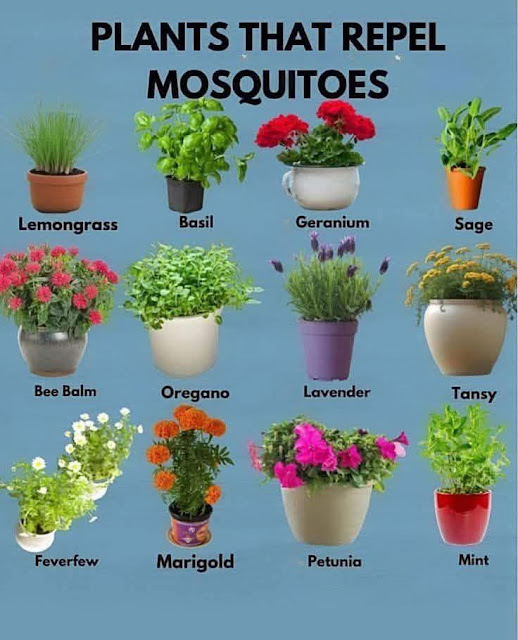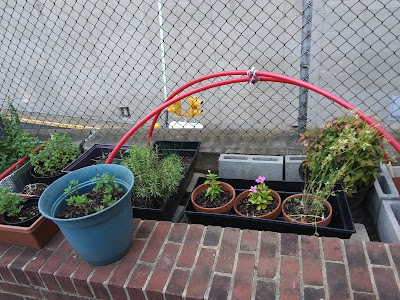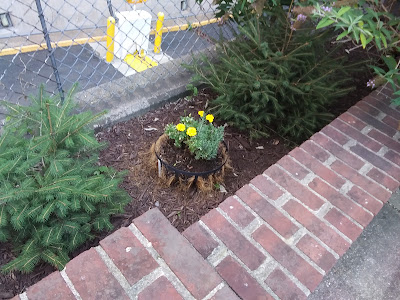Washington DC Urban Gardening
Gardening inside the Washington, D.C. urban core presents many challenges that people living in the country cannot even imagine. There is extra pollution from the number of vehicles, heavy vehicles including trucks and buses generate. The large office building next door has a multi-story underground garage with emission pipes that emit collected daily exhaust, possibly from a refueling station. Its pretty unhealthy to be outside when three large metal exhaust pipes are spewing toxic fumes less than twenty-five feet away from the garden. We are also surrounded by multistory buildings ranging from three to ten stories height. There used to be many dogwalkers passing by, and even the parish priest had a couple dogs who roamed around defecating at unpredictable places. And then there are the rats who roam around at night, and here in Chinatown, they are practically the size of water-rats, who rush from garbage bins to their underground dens. No joking about the rush either! They are faster than any football linebackers, trampling on and past anything in their path.
Only two of the four trial plants made it from last year: the daisy and the oregano. The churchyard rats or birds like to chew on the coconut fiber and after a few months, the basket was eaten bare. The weather was extraordinarily hot last year, so maybe the lavender and oregano became too dry. Given our frequent efforts it was still more likely the same culprit who poisoned the rhododendron brush caused the lavender to wither overnight. It was sad because we were trying our best.
On that day Jesus left the house and was sitting by the sea. And such large crowds gathered to him that he went aboard a boat and sat down, and all the crowd was standing on the beach. Then he told them many things by illustrations, saying: 'Look! A sower went out to sow. As he was sowing, some seeds fell alongside the road, and the birds came and ate them up. Others fell on rocky ground where there was not much soil, and they immediately sprang up because the soil was not deep enough. But when the sun rose, they were scorched, and they withered because they had no root. Others fell among thorns, and the thorns came up and choked them. Still others fell on fine soil, and they began to yield fruit, this one 100 times more, that one 60, the other 30. Let the one who has ears listen.' --- 13:1-9
In other words, what happens is not necessarily our efforts, but what God wills, and the nature of the human destiny and their capacity to receive the Word, irregardless of even the most optimal conditions. This is why Jesus explained for his disciples in Matthew later on:
"Now listen to the illustration of the man who sowed. Where anyone hears the word of the Kingdom but does not get the sense of it, the wicked one comes and snatches away what has been sown in his heart; this is the one sown alongside the road. As for the one sown on rocky ground, this is the one hearing the word and at once accepting it with joy. Yet, he has no root in himself but continues for a time, and after tribulation or persecution has arisen on account of the word, he is at once stumbled. As for the one sown among the thorns, this is the one hearing the word, but the anxiety of the system of things and the deceptive power of riches choke the word, and it becomes unfruitful. As for the one sown upon fine soil, this is the one hearing the word and getting the sense of it, who really does bear fruit and produces, this one 100 times more, that one 60, the other 30." --- 13:18-23
What will happen to the new opportunities encouraged by the Staff in the light of the Spring Cleaning and Gardening Day is something we must await with hope despite the unusually wet Spring. They have provided many new supplies including additional pots, tools, plants, and seeds. With the help of volunteers things may turn out truly awesome in spite of the endless unpredictability of this year so far.






















